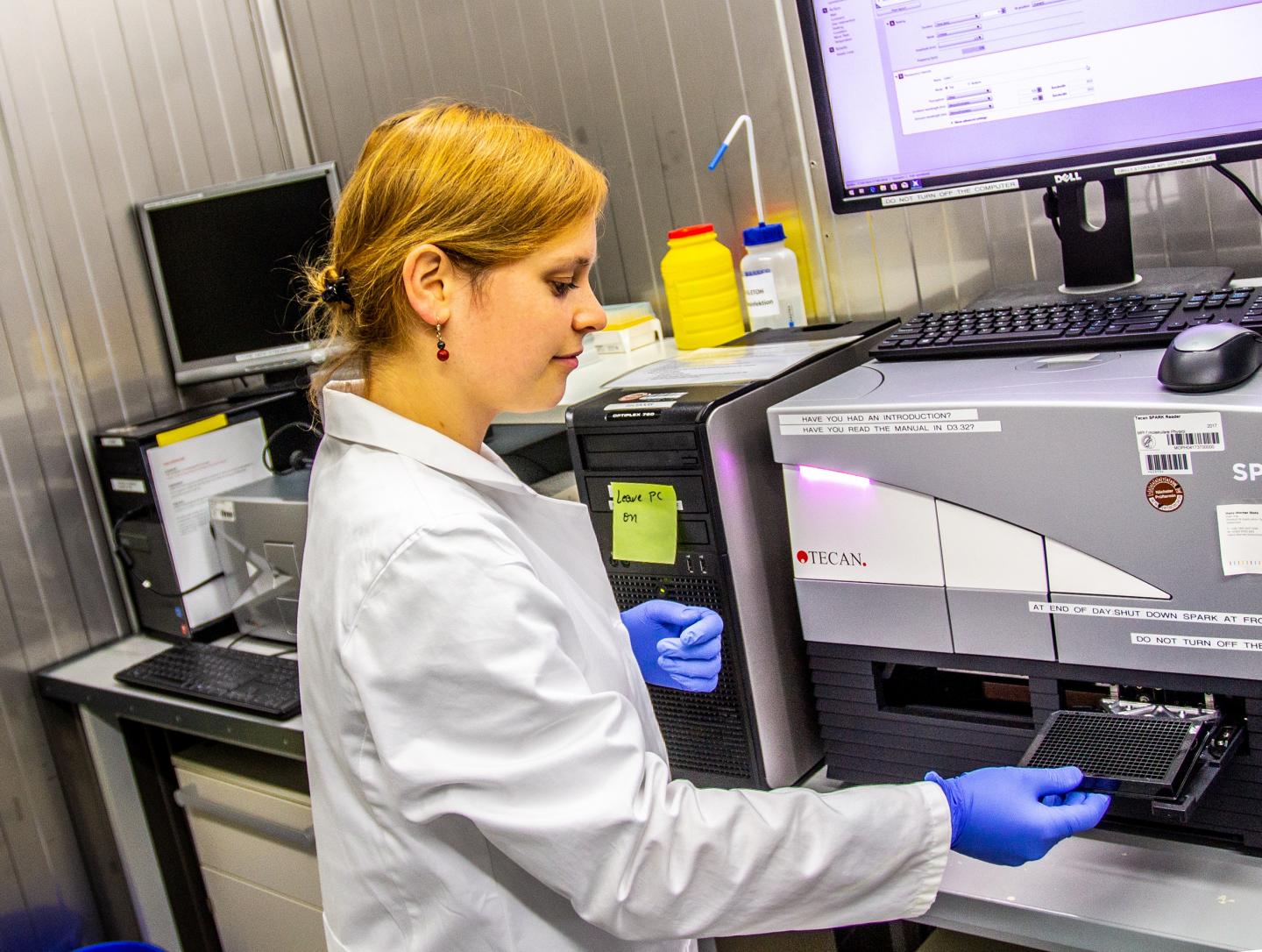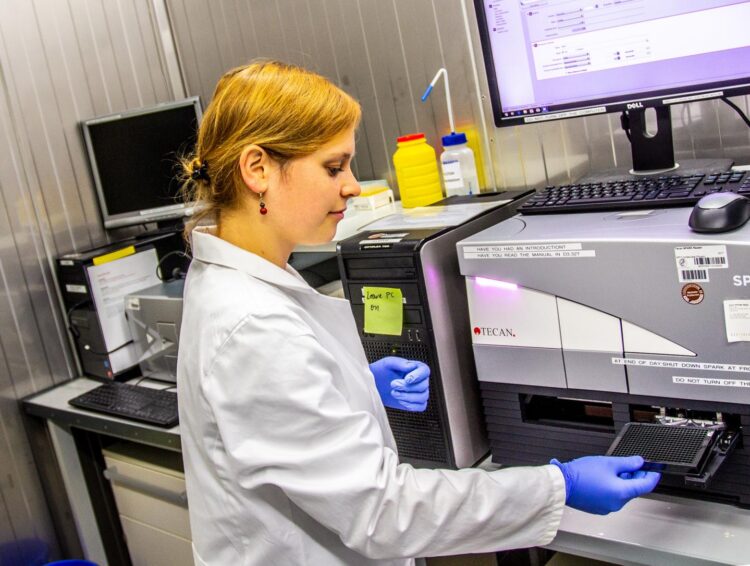Max Planck scientists from Dortmund find immunoregulatory substances with newly developed test system

Credit: @MPI of Molecular Physiology
Our immune system is very successful when it comes to warding off viruses and bacteria. It also recognizes cancer cells as potential enemies and fights them. However, cancer cells have developed strategies to evade surveillance by the immune system and to prevent immune response.
In recent years, fighting cancer with the help of the immune system has entered into clinical practice and gained increasing importance as a therapeutical approach. Current therapies apply so-called immune checkpoint inhibitors. Immune checkpoints are located on the surface of cancer cells and slow down the immune response. Targeting these checkpoints can release this tumour-induced brake. Another strategy developed by cancer cells to escape the immune response is the production of the enzyme indoleamine-2,3-dioxygenase (IDO1), which metabolizes tryptophan into kynurenine and thereby interferes with the immune response in two ways: On the one hand, the depletion of tryptophan negatively impacts the growth of T cells, a central component of the immune response, which seek out and block cancer cells. On the other hand, the produced kynurenin inhibits T cells in the immediate environment of the cancer cells.
New Inhibitors against IDO1 – The Quest is on
IDO1 is in the focus of pharmaceutical research because of its cancer-driving effect. However, the search for IDO1 inhibitors has so far been only moderately successful and the first clinically tested IDO1 inhibitor, epacadostat, showed hardly any effect in clinical trials. However, it has not yet been possible to prove whether the inhibitor really blocks IDO1 in the tumour and whether the used dose is sufficient.
In drug discovery, experimental test procedures, so-called assays, are employed to search for new disease modulators in large libraries of thousands of compounds. For this purpose, mostly biochemical assays are applied, where a biochemical reaction is impaired if a substance shows an inhibitory effect in the assay. However, this method has certain disadvantages and limitations, as the test takes place in a test tube and not in the natural, cellular environment of the enzyme. For instance, enzymes like IDO1 are less stable and more reactive outside the protective shell of the cell. In addition, cell-free assays cannot detect indirect inhibitors of the enzyme, that for example interfere with its production or with essential co-factors.
Novel Cell-Based Assay Discovers IDO1 Inhibitors with Different Mechanisms of Action
Scientists led by Herbert Waldmann and Slava Ziegler have now developed a cell-based assay for the discovery of new IDO1 inhibitors that overcomes the limitations of cell-free assays. Elisabeth Hennes, PhD student at the MPI and first author of the study, employed a sensor that measures the conversion of the IOD1 substrate tryptophan into the metabolic product kynurenine in cell culture and thereby detects IDO1 activity. Based on this test strategy, several highly potent inhibitors with different mechanisms of action were identified from a library of more than 150,000 chemical substances: These include substances that directly switch off IDO1 as well as indirect inhibitors that prevent the production of IDO1 itself or that of its important cofactor heme.
“Unfortunately, previous attempts to find a compound that effectively stops the cancer-promoting activity of IDO1 in tumours have met with little success. However, the development of new compounds that can switch off IDO1 via different mechanisms of action could be a promising approach for immunotherapies in the fight against cancer. We hope that our newly developed cell-based assay could contribute to this area of research”, says Slava Ziegler.
###
Media Contact
Johann
[email protected]
Original Source
https:/
Related Journal Article
http://dx.





